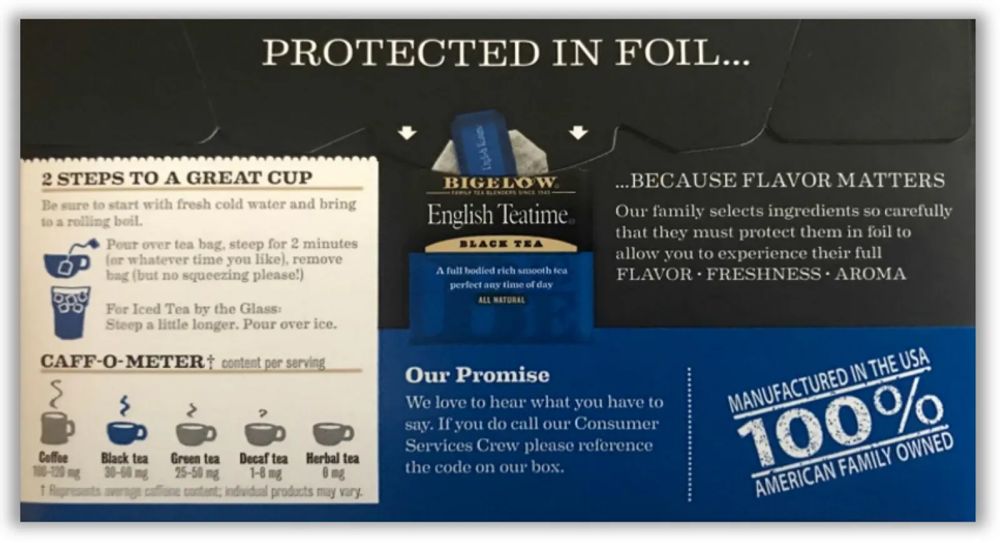In 2020, plaintiffs filed a class action complaint in California federal court against Bigelow Tea, alleging that the company falsely represents that its teas are made in the United States, when the teas are actually grown and processed abroad. Among other things, the plaintiffs pointed to Bigelow's use of term "Manufactured in the USA" on the backs of certain packages.

One of the key questions in the case is how consumers understand the "manufactured" claim. Bigelow argued that the claim refers only to the tea bags – not to the tea itself – and that the claim was truthful because the bags are, indeed, made in this country. In contrast, plaintiffs argued that consumers understand the claim to mean that the tea itself is processed in the USA, and they presented a consumer perception survey to support their argument. In 2023, the court allowed that survey, over Bigelow's objections.
This week, the court granted partial summary judgment to the plaintiffs, rejecting Bigelow's argument that the "manufactured" claim refers only to the tea bags. The court wrote that "the tea leaves inside are vital to the tea bags as consumers purchase tea bags for the tea itself. In fact, the tea leaves are not only a component part of the tea bag; they are the very essence of the tea bag." Because the tea leaves are grown and processed abroad, the court found the "Manufactured in the USA" statement to be literally false.
Although the decision only mentions the FTC in passing, the analysis mirrors how the FTC would read Bigelow's claims. In fact, the court notes that the FTC has determined that "consumers are likely to understand an unqualified U.S. origin claim to mean that the advertised product is 'all or virtually all' made in the United States." For more details on how the FTC approaches these claims, see this week's post about the FTC's newly updated version of its Complying with the Made in USA Standard business guide.
The content of this article is intended to provide a general guide to the subject matter. Specialist advice should be sought about your specific circumstances.



